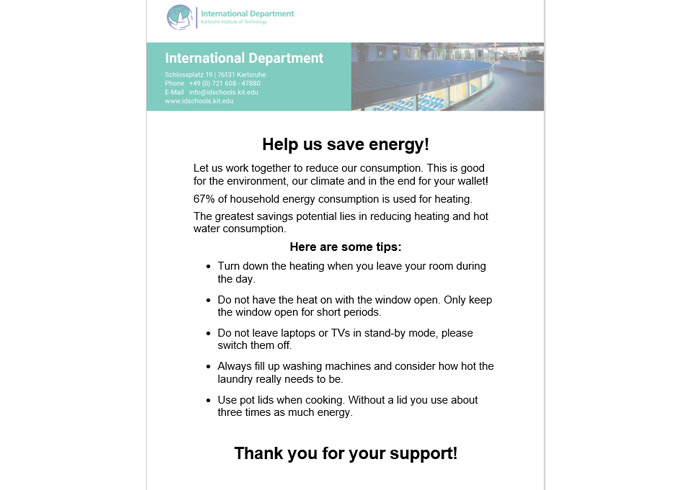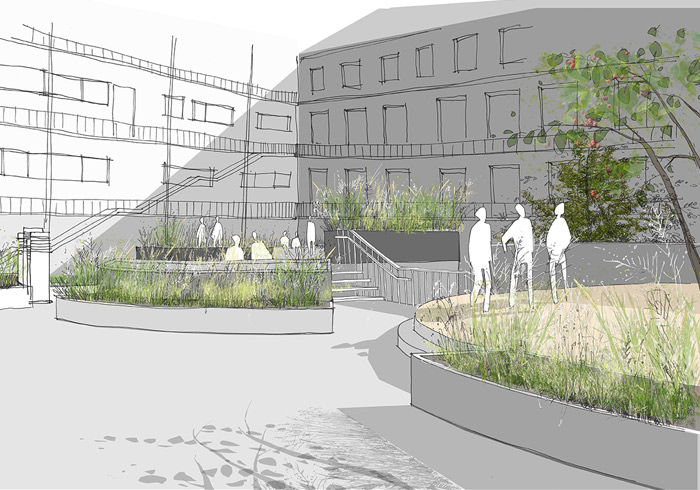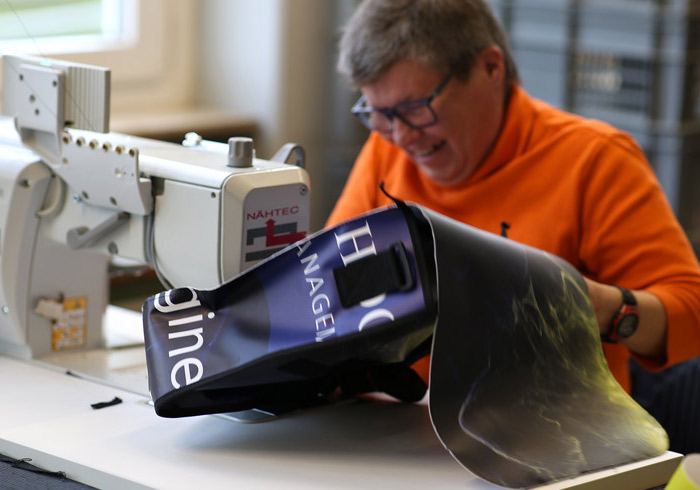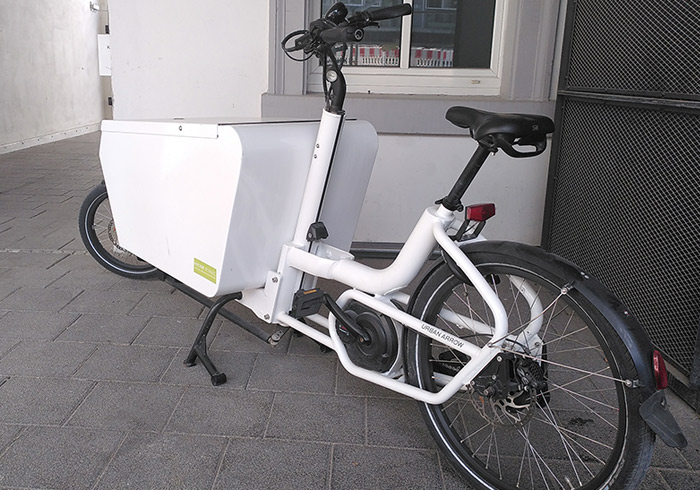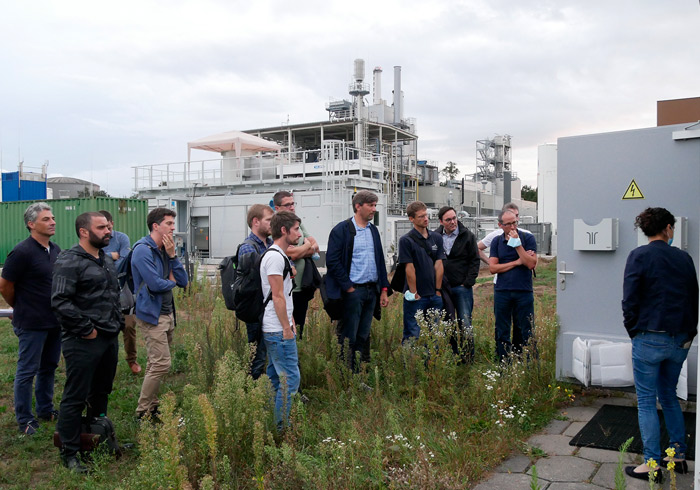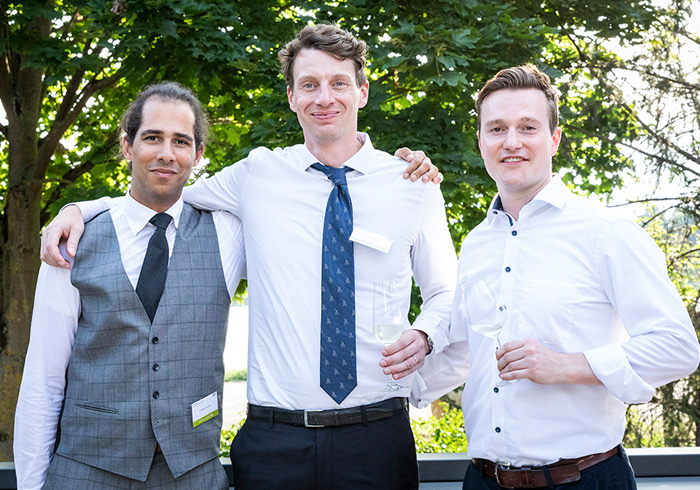The future is now.
All over the world, there is a recognition that people are aware of the need to take action to protect the environment.
At HECTOR School, we are committed to reducing our carbon footprint and promoting environmental consciousness through the implementation of sustainable practices. Our goal is to create a sustainable and eco-friendly ecosystem that benefits both our staff and students. This article aims to showcase our various initiatives towards achieving a greener study environment, encompassing changes in our campus, curriculum, as well as sales and marketing strategies.
"We at the HECTOR School - as a Technology Business School in an international setting and with close bond to the industry - have the opportunity and at the same time also the responsibility to foster a global community of sustainability-"champions". By engaging in research to advance carbon-neutral technologies and facilitating their transfer to the industry through the HECTOR School's further qualification programs, we empower future leaders to address the environmental challenges we face. In doing so, curricular content and campus management go hand in hand."
Prof. Dr. Stefan Nickel, HECTOR School Program Director
Sustainable Campus Operations
In our ongoing activities to promote sustainability, we actively engage in various operational practices that contribute to a greener and more eco-conscious campus. By implementing these initiatives, we strive to foster a culture of sustainability among our staff and students.
These include: reducing energy consumption, promoting renewable energy sources, implementing efficient waste management systems, adopting sustainable transportation options, and utilizing green building design principles.
Consequently we inform our new students from all countries living on campus about the waste system in Germany, including waste prevention, reuse, recycling, other recovery, disposal. To ensure our students are well-acquainted with these practices, we offer regular monthly tours, along with personalized individual tours, focused on waste management and sustainability on campus. To further support the recycling system with better waste separation, the professional cleaning team takes care of the disposal.
Switching energy production to CO2-free processes is one side of the coin, but it is just as important to reduce energy demand where possible. We therefore believe that it is important to raise awareness of energy savings.
To encourage energy-saving behaviors, helpful tips are posted throughout the campus, to remind each of us to use energy-efficient practices in our daily activities. These include the following tips:
- Turn down the heating when you leave your room during the day.
- Do not have the heat on with the window open. Only keep the window open for short periods.
- Do not leave laptops or TVs in stand-by mode, please switch them off.
- Always fill up washing machines and consider how hot the laundry really needs to be.
- Use pot lids when cooking. Without a lid you use about three times as much energy.
We believe in a balanced approach to digitalization, utilizing the potential of technology to promote eco-friendly practices. As part of this commitment, we have embraced digital solutions to streamline and enhance our operational processes. For example, we have significantly reduced paper usage and associated waste by digitizing the application procedure in 2021. This is just another relevant step forward in our journey towards a more sustainable campus.
Campus Planning and Design
With each reconstruction, we also think about energy saving measures and how we can make space for nature. This can be seen, for example, in the large-scale reconstruction from 2022 to 2023, and the inclusion of green areas as infiltration zones. These green areas were planted with plants that thrive well under the climatic conditions in Karlsruhe and do not require excessive watering during our hot summers.
Moreover, we replaced 150 exterior windows in the southern part of the building entirely, upgrading them to the latest energy standards.
Looking ahead, we have plans to install a 250 kW peak solar system in 2024. This solar system will supply us with green electricity during sunny days in Karlsruhe. Additionally, the HECTOR School building is connected to the city of Karlsruhe’s district heating network, allowing us to utilize environmentally friendly heating methods, especially during the colder months.
Sustainable Procurement
We prioritize sustainable procurement practices by sourcing environmentally friendly products and services.
This means going largely paperless and - where printing needs to be done - double-sided printing on recycled paper. We understand the importance of aligning our sales and marketing practices with eco-friendly principles. We actively seek opportunities to incorporate sustainable strategies into our promotional activities and careful consider what marketing materials need to be printed.
During special events and occasions, we prioritize offering sustainable and practical gifts to our students. Tote bags, lunch boxes, drinking bottles, and other eco-friendly items are chosen to promote sustainability and reduce reliance on single-use items.
Old roll-ups and banners were converted into individual bags in a workshop for disabled people in a campaign for alumni in 2023. This approach not only extends the lifespan of these materials but also encourages sustainability among our students and alumni community.
For our events, we rely on local vendors, and increasingly on meatless meals, since animal agriculture is one of the main contributors to greenhouse gas emissions, deforestation and water pollution. By choosing plant-based products, we reduce our environmental footprint, conserve resources and promote sustainable practices. Furthermore, plastic cutlery and plates are also a thing of the past.
When purchasing catering for the participants of the continuing education programs at HECTOR School, we make sure not to buy small individual plastic-packed packages, but instead to use larger containers and provide items hygienically (e.g. nut packages and juice in re-fillable bottles). As an alternative to cow's milk, oat milk is also offered.
Sustainable Transportation
We promote sustainable transportation options for our students, faculty, and staff. This involves promoting public transportation use and informing our students about the possibilities to buy used bikes or borrow bikes on our webpage and via e-mail before their study start.
Sustainable Transportation also includes relying on virtual meetings and traveling less. Where travel is necessary, we prioritize the use of trains over other modes of transportation. Domestic flights in Germany are no longer permitted for employees.
The company car has already been removed in 2019 and a cargo bicycle has been purchased for the use of the staff. For events where a car is needed, teams are formed so that the cars are as full as possible and Stadtmobil is used as a car-sharing organization.
Curriculum Integration
Integrating topics into lectures that advance CO2 neutrality, particularly in engineering courses, is crucial for several reasons:
- Addressing global challenges: Sustainability is a pressing global challenge that affects various aspects of our lives, including the environment, society, and the economy. Engineers play a significant role in developing solutions to these challenges. By incorporating sustainability topics into lectures, our students gain an understanding of the issues at hand and are equipped to contribute to sustainable development in their future careers.
- Holistic problem-solving: Sustainable engineering requires a holistic approach that considers environmental, social, and economic aspects. By integrating sustainability topics into our lectures, we enable students to develop a broader perspective and learn to evaluate problems and solutions through multiple lenses. They can then design more effective and comprehensive solutions that consider long-term impacts and promote sustainability.
- Future-proofing engineering skills: As the world increasingly embraces sustainability, it becomes essential for especially engineers to possess the knowledge and skills required to address sustainability challenges. By introducing sustainability topics into our lectures, we ensure that our students are prepared for the evolving demands of the profession. This includes understanding concepts like renewable energy, green building design, circular economy, recycling management, and sustainable manufacturing processes.
- Ethical and responsible engineering: We have made the experience that by integrating sustainability into lectures a sense of ethical responsibility among engineering students is fostered. They learn about the social and environmental impacts of their work and recognize the importance of minimizing harm and maximizing positive outcomes. Our aim is to encourage graduates to prioritize sustainable practices and to be mindful of the broader consequences of their actions.
- Interdisciplinary collaboration: With its continuing education programs in an international setting, the HECTOR School of Engineering and Management stands for and promotes interdisciplinary and intercultural exchange. By integrating sustainability topics into engineering lectures, our students are exposed to interdisciplinary perspectives and learn to work effectively with professionals from diverse backgrounds. This prepares them for real-world scenarios where interdisciplinary teamwork is essential for finding sustainable solutions.
- Meeting standards: As a Technology Business School, we are in constant exchange with the industry and we see the industry's recognition of the importance of sustainability in engineering practice and ensure with integrating sustainability topics in our curriculum that our graduates possess the necessary knowledge and skills. Thanks to this strong bond, we are working together to enable a more sustainable future together.
For us integrating sustainability topics into engineering lectures is crucial to address global challenges, foster holistic problem-solving skills, future-proof engineering education, promote ethical and responsible engineering practices, encourage interdisciplinary collaboration, and meet industry and society standards. Our aim is to develop a generation of engineers who are equipped to create sustainable solutions and contribute to a CO2 neutral future.
We integrate sustainability principles and practices into our academic programs across various disciplines. Programs and teaching units with a special focus on CO2 neutrality and sustainability are:
- Entire Master´s Program in Energy Engineering and Management
- Master´s Program in Information Systems Engineering and Management:
- Lecture in “Sustainable Business Process Modeling”
- Master´s Program in Mobility Systems Engineering & Management:
- Specialization e-Mobility
- Master´s Program in Management of Product Development
- EM2 “Digital Engineering Ecosystems”
- EM4 “Systems and Cases”: Eco-Design Methodology of Sustainability
- Master´s Program in Production & Operations Management
- EM2 “Digital Engineering Ecosystems”
- Certificate Course in “Sustainable Product Development”
- Certificate Course in “Battery Technology”
- All Master's programs include a lecture on Sustainability in the management module starting from 2023 on.
More are already in the pipeline and to come.
Research and Innovation
We form the interface to bring the latest research results, e.g. from the KIT Energy Center, to industry for application: Transforming Research into innovation. For this purpose, customized training programs are set up for the companies and, for example, guided tours are organized.
A successful example of long-term collaboration to transfer new knowledge into the industry is shown in the Haufe article about the transformation of Rolls-Royce Power Systems.
Student Involvement and Leadership
As our students are going to be the future leaders in companies all over the world, we want them to be open to sustainability issues, to recognize the potential for their respective companies and to be aware of their responsibility to actively shape the future of us all.
We strive to encourage our students to implement sustainability and CO2 reduction not only in their lives, but also in their business environment. As our further education programs include technical innovations as well as management modules, we see our students as the ones who will be significantly leading our society towards a better future.
Some of our alumni show their commitment to alternative energy:
- Martin Chau noticed that while there is significant international interest in climate change from a political perspective, there is a lack of sufficient research on an engineering and technical level to practically address the impact of greenhouse gas (GHG) emissions. That´s why he decided to write his Master´s thesis about "Designing a Dashboard for Sustainability Specialists to monitor Greenhouse Gas Emissions in the context of Supply Chain Management". Find the whole interview here.
- Daniel Lupianez Interview about the change in the energy industry.
- Sangram Savant's passion is to contribute in finding solutions for green solar hydrogen as well as carbon capture and storage through renewable pathways.
- Simon Baettig was impressed by the innovation lectures and wants to spread the word about how versatile sorghum is. This means that not only sorghum, but also he has the potential to be a world changer.
- Simon Schweda´s goal is to provide as many electricity producers as possible with easy access to the energy industry and thus to forward the energy transition.
We recognize that sustainability efforts are an ongoing journey, and as we strive for a greener future, we understand that there will always be more measures to embrace and unfold.
If you have suggestions and ideas, we are happy to have a common goal and ask you to send them to info∂hectorschool.com.


